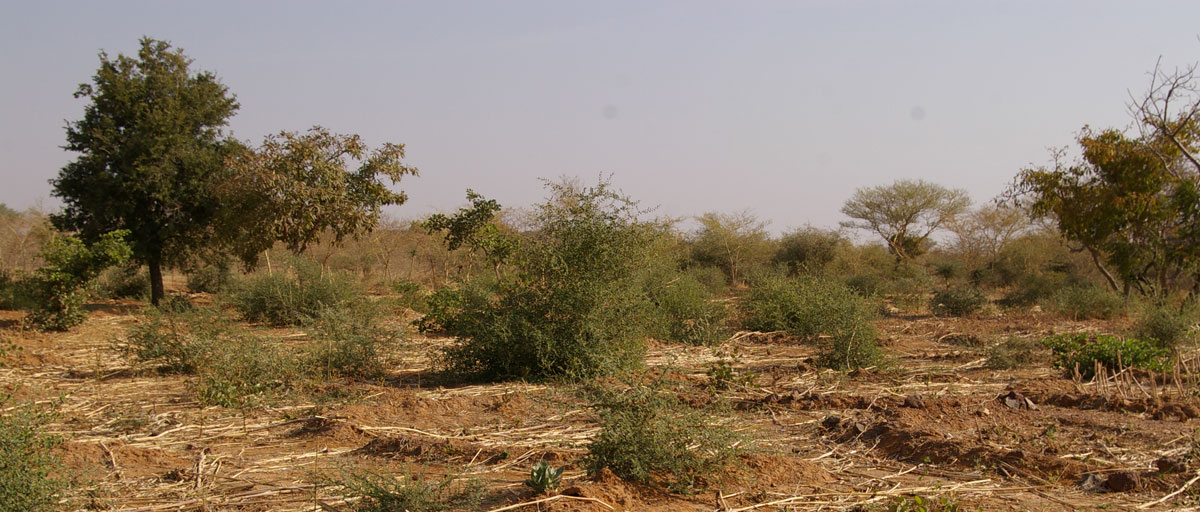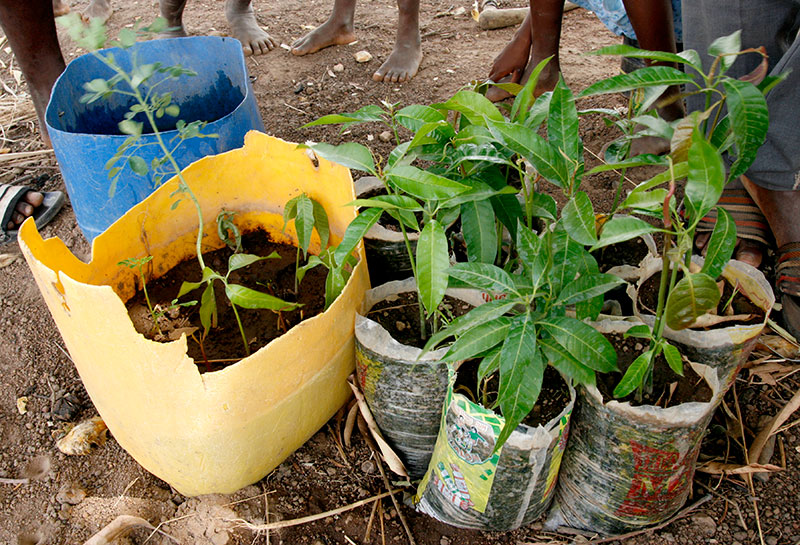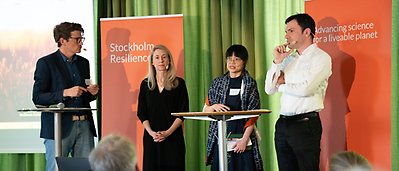
Half-moons - a soil and water conservation structure to improve crop yields – on a field with relatively high density of trees and shrubs in northern Burkina Faso. Photo: H. Sinare
The institutional context is of key importance for improved management practices
Leadership at village level and decentralized control of natural resources management has been identified as key factors for improved management practices, for example for farmers to keep trees on their fields
The protection of trees on fields depends on local institutions
In Niger, the tree cover has increased through farmer managed natural regeneration of trees and shrubs on fields in villages with established surveillance committees for trees on fields, or with a village chief showing leadership regarding the regeneration of trees. [Baggnian et al 2014]. This decentralization of control of tree management from the state to communities seems to be crucial for farmer managed regeneration of trees to work [Mikulčak 2011]. Land tenure influence tree management. Land ownership increase the likelihood that farmers plant trees, but does not influence if farmers protect naturally sprouting trees.
Multifunctional landscapes must be managed in an integrated way
Farmers are knowledgeable of what the landscape provides and how the generation of these benefits are interlinked, but institutions at higher level might not integrate their work sufficiently. In Burkina Faso there seems to be a potential for integrated management as the responsibility for natural resources management is decentralized to the municipal level. But this decentralization is relatively new and the provincial, regional and national ministries are still separate for agriculture, livestock and environment [Sinare 2016].

Cuttings of a mango tree made by a farmer in the Upper East region in northern Ghana. Once the cuttings are big enough, they will be planted in moist soil, often depressions where conditions seasonally get too wet for other crops, and their fruits are sold at the market or eaten by children in the village. Photo: K. Malmborg
Content facts...
Hanna Sinare is a postdoctoral researcher for GRAID working with synthesising SRC research on social-ecological systems, ecosystem services, and development in the West African Sahell.
Line Gordon is the deputy director and deputy science director at the Stockholm Resilience Centre. She is also assistant professor at the centre with a focus on freshwater resources, ecosystem services and food production
Elin Enfors Kautsky's research centers on pathways for transformative change towards sustainability, and she also leads a section of the GRAID programme, which focuses on operationalizing resilience thinking in practice.
LATEST NEWS
-

Research news | 2024-07-05
Do hunting and fishing bring us closer to nature?
Sustainably harvesting wildlife can foster an increased sense of stewardship, a new article in Nature Sustainability argues.
-

General news | 2024-06-18
Centre leadership appointed for another term
Centre Director Line Gordon and Centre Deputy Director Lisen Schultz have been appointed to continue in their respective positions for another three years. The appointment was made by Stockholm University leadership
-

General news | 2024-06-12
Centre science featured in new Spotify podcast hosted by Alexander Skarsgård
“How We Fix This”, a new podcast series from Spotify and Norrsken, delves into concrete solutions to some of the world's most pressing sustainability issues. It is hosted by Emmy and Golden Globe award-winning actor Alexander Skarsgård and features several Centre researchers.
-

General news | 2024-05-27
Centre researcher Peter Søgaard Jørgensen joins the Young Academy of Sweden
Centre researcher Peter Søgaard Jørgensen has been elected into the Young Academy of Sweden, a junior version of the Swedish academies, including the prestigious Royal Swedish Academy of Sciences
-

General news | 2024-05-20
First Swedish citizens' assembly: Sweden needs to be united on climate
Make climate change a school subject, invest in high-speed trains and make public transport more reliable, equal and cheaper. These are 3 of 22 proposals from Sweden's first national citizens' assembly on climate change
-

General news | 2024-05-17
"If the planet doesn’t work, we will not be able to live on it”
The decisions that humanity makes this decade will shape the living conditions on our planet for many generations to come.




